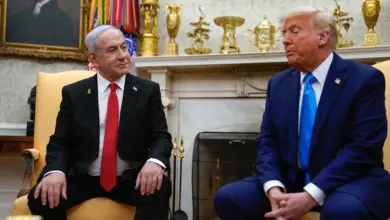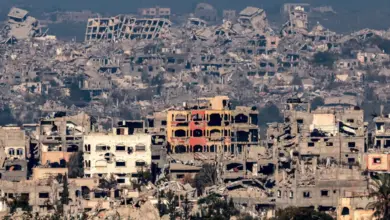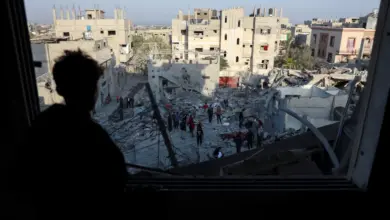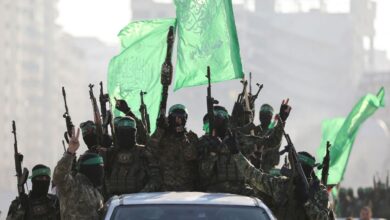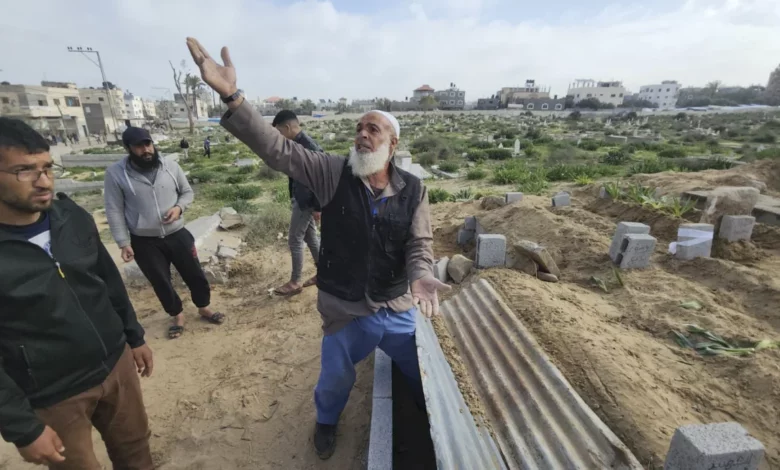
The graveyard at Deir al-Balah in central Gaza, dotted with the green and gray of shrubs and tombs, has been expanded several times in recent months to accommodate the interminable flow of bodies.
Baraka says he has buried 16,880 people since Israel launched its assault on Gaza in response to Hamas’ October 7 terror attack – more than half of the 30,631 reported dead by the enclave’s ministry of health. Israel estimates about 10,000 of those killed are Hamas fighters. CNN cannot independently verify the casualty tolls in Gaza or the Israeli estimates of Hamas fighters killed.
“I come to the cemetery at 6 a.m. and stay until 6 p.m. to prepare mass graves for 30, 40 people,” Baraka told CNN Monday. “I have made 167 mass graves. I only hope they send us some tiles and cement so we can bury the people with dignity.”
Baraka, 64, was a gravedigger long before October 7. But he says the horrors he has seen since then – dismembered children, whole families buried together, graves filled “with tens of people in each” – have been hard to comprehend.
“I try to go to sleep, and I swear I can’t even if I take 2 kilos of sleeping pills,” he said.
Baraka estimates around 85% of those he has buried have been women and children. “They killed all the women. They were all killed because they are the ones that stayed at home,” he said.
Of the thousands of bodies that have poured into his cemetery, he claimed he has buried no more than three Hamas fighters. He said Israeli Prime Minister Benjamin Netanyahu “is lying when he says he is killing Hamas.”
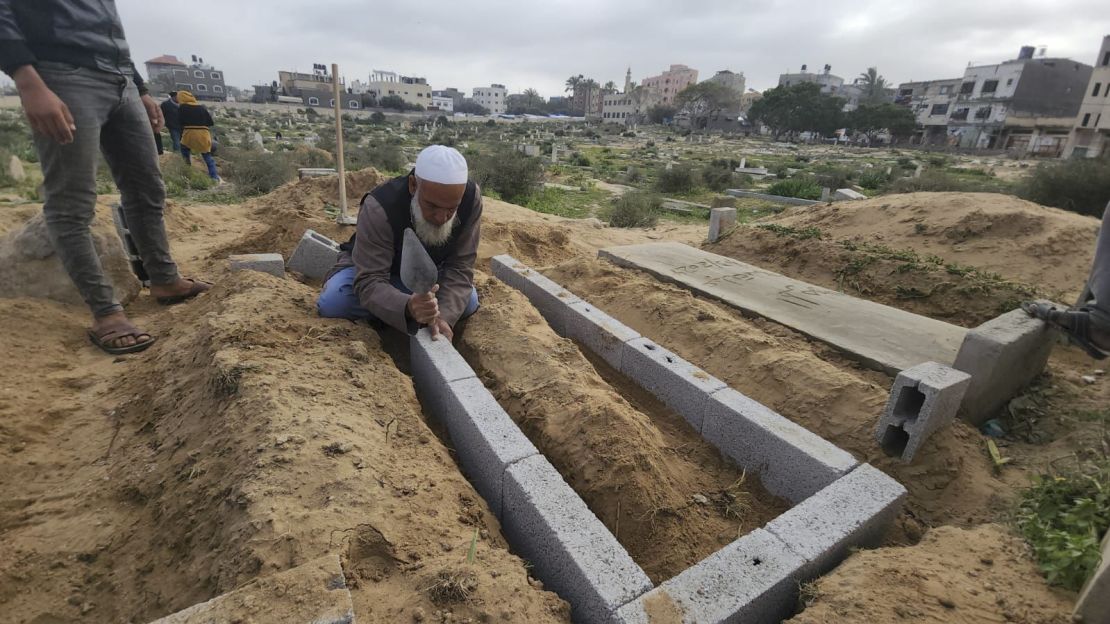
CNN footage shows workers building new graves with concrete blocks above ground instead of digging fresh ones in the crowded earth. Baraka pours dirt through a sieve, separating the rocks from the silt, then adds water and churns the cement with a shovel, before smoothing it with a spade over the top of a grave, covered with a flap of corrugated iron.
Most tombstones are a single concrete block – the same used to build the walls of the grave. Epitaphs are scratched into the concrete with a nail, or simply etched into the wet cement with the tip of a spade.
As Baraka and his men work, they are surrounded by the buzz of Israeli drones and the stench of death.
“Of course it smells, those are mass graves,” he says. He remembers many of the dead by name. “This is the Laghi family, this is the Abu Hasanein family, those are Abu Hattab,” he says, pointing.
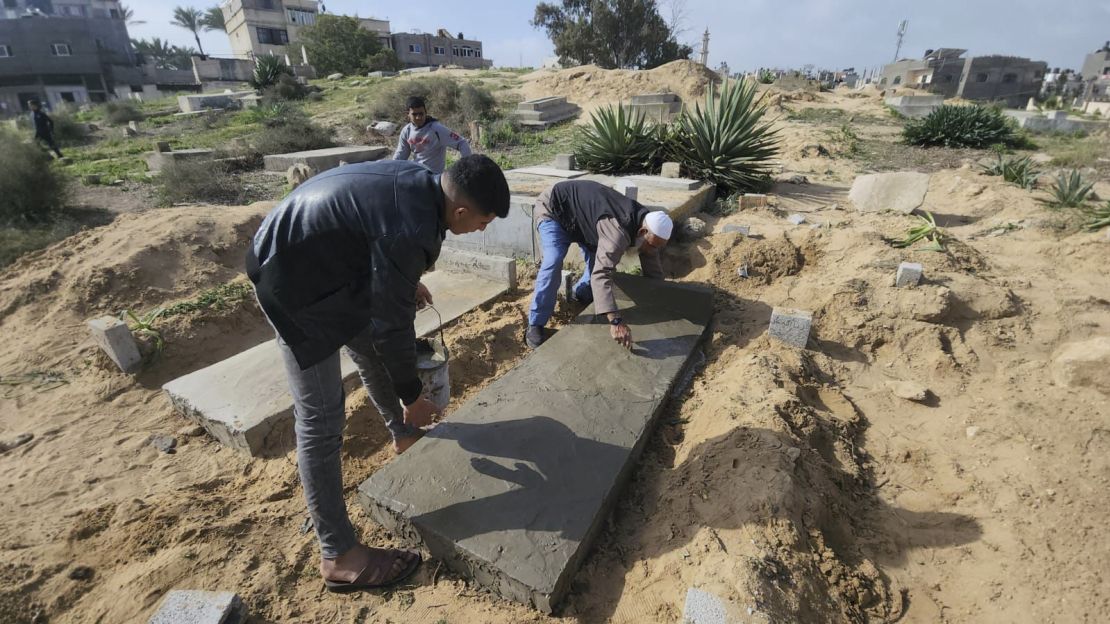
While many of the dead have been killed by Israeli airstrikes, which have pummeled Gaza for nearly five months, many are now dying of hunger, according to the World Health Organization (WHO).
A WHO team said Monday it found “severe levels of malnutrition, children dying of starvation, serious shortages of fuel, food and medical supplies, hospital buildings destroyed,” during a recent visit to the north of Gaza.
The warning came just days after scores of Palestinians were killed trying to access food in Gaza City on Thursday. At least 118 were killed and 760 injured in an incident where Israel Defense Forces (IDF) troops used live fire as hungry and desperate Palestinian civilians gathered around food aid trucks, according to the Palestinian ministry of health.
After the incident, the US for the first time air-dropped humanitarian aid into Gaza. More than 38,000 meals were dropped Saturday along the Gaza coastline in a combined operation by the US Air Force and the Royal Jordanian Air Force. A further 36,800 were dropped Tuesday, according to CENTCOM.
But Baraka dismissed the operations as a political stunt. “We don’t want them to drop fast food from airplanes. They are showing off.”
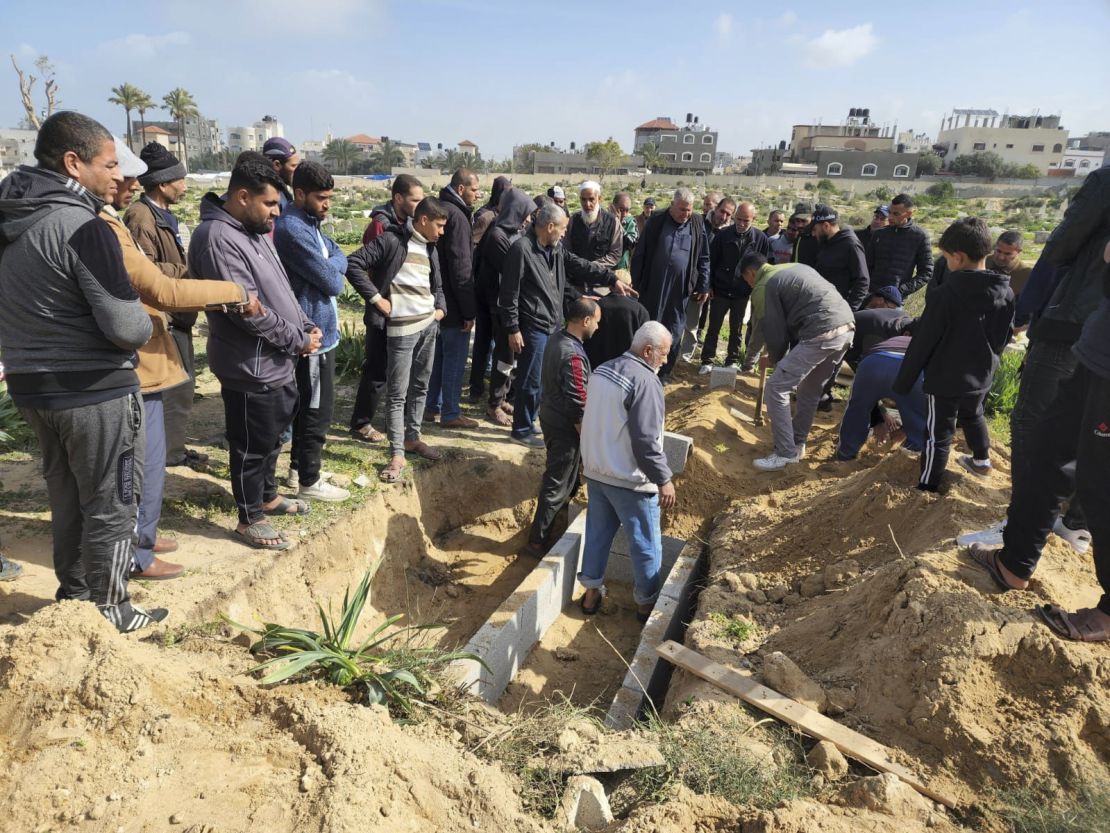
While CNN filmed, a woman entered the cemetery with several men carrying the bagged body of her lifeless daughter. She begs Baraka to see her daughter before he buries her. Baraka agrees, then asks the men to let the woman look upon her daughter for the last time while he prepares her grave. Later, dozens stand and pray while her body is lowered into the ground.
Baraka said he worked in Israel for 28 years and wants to live to see an end to generations of violence.
“I only want peace and I see no other solution. We should live as one and that’s it. It’s enough with all those wars,” he said.
He said he supports “two states for two people living together with love,” but warned that Israel’s attempt to “destroy” Hamas will not bring this about.
“You are wasting your time, Netanyahu,” Baraka says in Arabic, before switching to Hebrew. “If you want to finish Hamas – I tell you in Hebrew so you can hear me – you are wasting your time.”

